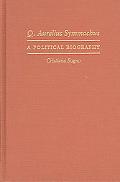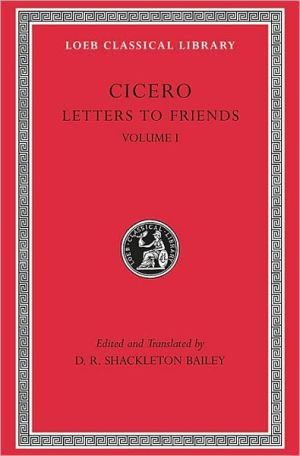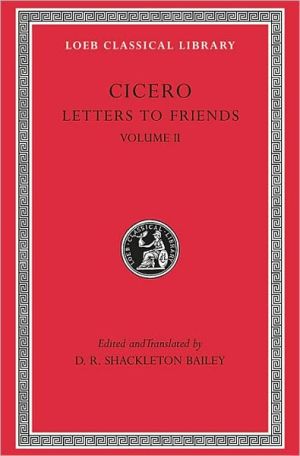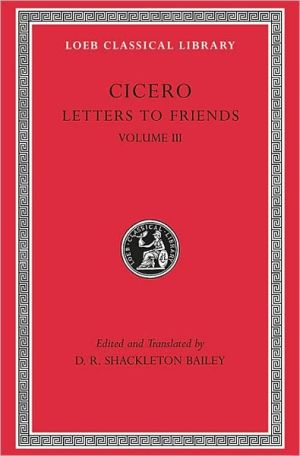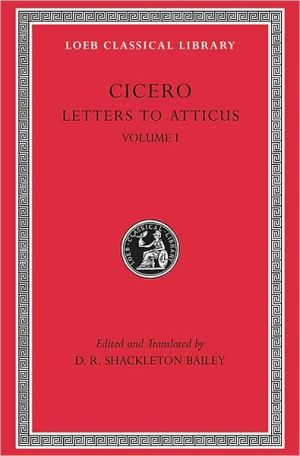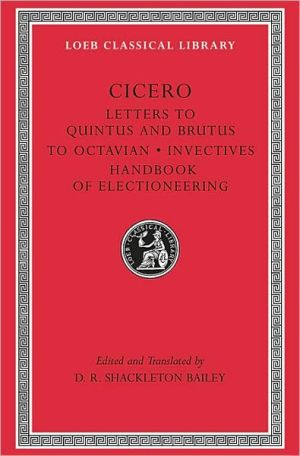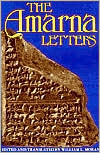Q. Aurelius Symmachus: A Political Biography
Search in google:
Q. AURELIUS SYMMACHUS\ A Political Biography \ \ By Cristiana Sogno \ THE UNIVERSITY OF MICHIGAN PRESS\ Copyright © 2006 University of Michigan\ All right reserved.\ ISBN: 978-0-472-11529-7 \ \ \ Chapter One\ Laying the Foundations of a Political Career: The Orationes \ The first phase of Symmachus' career before he achieved the urban prefectureship in 384 is well documented by the Orationes. His appointment as senatorial ambassador in 368 marked a turning point in his life. It was at the court of Valentinian I that Symmachus established his reputation as orator and, for the first time, acted as mediator between senate and court, a role he would play with varying degrees of success throughout his career. Even in the deceitful atmosphere of the imperial court, Symmachus formed durable and profitable alliances with some of the most prominent men of his times and, more importantly, was able to maintain these friendships by devoting time and effort to an assiduous correspondence once back in Rome.\ Symmachus' Rhetorical Fama and the Survival of the Orationes\ The history of the transmission of Symmachus' orations is both perplexing and delightfully ironic. Although Symmachus was acknowledged as the foremost orator of his times, his Orationes quickly disappeared from sight until the discovery in the nineteenth century of substantial fragments of eight speeches. By an ironic turn of events, the man still largely identified as the champion of paganism owes the rediscovery of an important part of his literary production to a cardinal of the Roman Catholic Church. In 1815 Cardinal Angelo Mai discovered and published the fragments of the orations. 2 To add insult to injury, Symmachus' speeches were hiding under the Latin translation of the acts of the Council of Chalcedon, but the learned cardinal did not hesitate to destroy the acts in order to rescue the writings of the sworn enemy of the true faith. Notwithstanding their rediscovery, Symmachus' Orationes are still largely ignored by modern scholars and constantly relegated to a marginal place in comparison to his other writings, especially the correspondence.\ The eight newly found orations constitute only a part of Symmachus' rhetorical production. Symmachus composed and delivered, but for obvious reasons never published, a panegyric for the usurper Maximus; and it is reasonable to assume the existence of a speech of thanks (gratiarum actio) for the consulship that he received in 391 as well as other speeches mentioned in his letters. As in the case of the first book of Symmachus' Epistulae, the surviving speeches were arranged not in chronological order but according to the importance of the addressee: first the panegyrics in honor of the Emperor Valentinian I and his son, Gratian (Or. 1-3). Then the gratiarum actio for the consulship of Symmachus' father (Or. 4); and finally four orations written and delivered on behalf of members and aspiring members of the Roman senate (Or. 5-8). Although the chronology cannot be ascertained with absolute certainty, Symmachus' surviving orations can be approximately dated to the first phase of his career, which began at the court of Valentinian I. The eight orations offer an interesting insight into the relationships between the senate and the imperial court of Valentinian I and Gratian and are a most revealing document of the senatorial mentality, ideology, and expectations.\ At the Court of Valentinian I\ In the winter of the year 367-8 a young senator, still at the beginning of his political career, set out from Rome on a long journey that would bring him to the imperial court in Trier. The main purpose of the journey was the delivery of a speech of praise (laudatio) for Valentinian I in the course of the traditional celebration for the Emperor's first five years of reign (quinquennalia ). 6 Moreover, the senatorial envoy carried with him the aurum oblaticium, a "voluntary tax" collected by the Roman senate. For a young and ambitious man of senatorial standing it was a great privilege to be chosen for such a mission: it was not only an official recognition of rhetorical talent, but also an opportunity for political advancement and the acquisition of friends at court. The man selected for the enterprise was Quintus Aurelius Symmachus, whose rhetorical skills were admired both by friends and political adversaries to the extent that he became universally acknowledged as the greatest orator of his time.\ The occasion for the embassy was festive, but the task at hand was nonetheless delicate: Valentinian had never been to Rome and was meeting with a senatorial delegation for the first time. As speaker among the members of the delegation, Symmachus had been entrusted with an important diplomatic mission and was responsible for establishing a relationship between the Roman senate and imperial court. By delivering the gold and officially acknowledging the ruling dynasty with the panegyric in honor of Valentinian I, Symmachus assured the emperor of the support of the senate at Rome. Conversely, upon returning to Rome, he was presumably expected to report to the senate firsthand information about the emperor and his entourage and provide a detailed account of how the money sent by the senate was spent, especially with regards to the defense of the borders.\ Senatorial Embassies at the Emperor's Court\ Embassies at court were an important part of senatorial activity and a golden opportunity to increase one's prestige and power by establishing crucial connections with influential members of the imperial entourage. Symmachus' own father, Lucius Aurelius Avianius Symmachus, had led numerous embassies on behalf of the senate, and his intense ambassadorial activity is recorded on the pedestal of a gilded statue erected by imperial decree upon request of the Roman senate in 377. One of Avianius' embassies is mentioned by Ammianus Marcellinus in the context of a passing reference to Avianius' journey to Antioch at the court of the Emperor Constantius. Ammianus does not relate the reason for the embassy but, earlier in the same book, describes how in the summer of 361 Julian, convinced that an open confrontation with the Emperor Constantius was unavoidable, had sent to the Roman senate "a harsh speech full of invective" (oratione acrem et invectivam), exposing the emperor's "shameful secrets and vices" (probra quaedam in eum explanantem et vitia). The senate had reacted negatively to the speech and reconfirmed its favor and trust in Constantius: in a memorable scene, Ammianus describes the unanimous acclamation of the senate, urging Julian to show respect for the "one who had made his fortune" by appointing him Caesar (Exclamatum est enim in unum cunctorum sententia congruente "auctori tuo reverentiam rogamus"). It is not unlikely that the senate had then decided to send a delegation to Antioch to reconfirm its loyalty to Constantius at a time when civil war seemed impending. But, given the uncertainties of war, on the way back from Antioch, Avianius Symmachus and Valerius Maximus, the senatorial envoys, decided to stop at Nassus where they were received by Julian "with full honors" (missos ... honorifice vidit). That embassy proved to be more profitable for Maximus than for Avianius: late in the Fall of the same year (361), Julian appointed Maximus to the urban prefecture instead of Tertullus, the urban prefect under whom the senate had reconfi rmed its favor and trust in Constantius, and in preference to Avianius, although the latter was the more established of the two. Avianius obtained the urban prefecture only after Julian's death (364) but was able nonetheless to make important acquaintances during his stay in Antioch. It was probably in the course of this mission that Avianius befriended the orator Libanius, who also refers to the same trip in a letter addressed to Avianius' son, our Symmachus. Moreover, in Antioch, Avianius might have met the future historians Ammianus Marcellinus and Eutropius, author of the Breviarium ab urbe condita, which was dedicated to the Emperor Valens. The hypothesis of an acquaintance with the latter is especially tantalizing and could explain more convincingly his presence among the correspondents of Symmachus. Eutropius was arguably a Gaul who made his fortune in the Eastern part of the empire, where he acquired extensive properties. At the time of Avianius' mission, Eutropius was one of Constantius II's chief secretaries of state (magister epistularum) a post he obtained thanks to his rhetorical ability and to Libanius' recommendation. It is not difficult to imagine Libanius introducing a talented and promising young man to a powerful Roman senator well known for his rhetorical skills and cultural interests. The friendship, probably begun by the father, was continued successfully and with reciprocal advantage by the son.\ Competition among Roman senators to be chosen as ambassadors must have been fierce, and rhetorical talent was not always the most important prerequisite. During Constantius' conflict with Magnentius (352-53), the senate chose as ambassador to the emperor Memmius Vitrasius Orfitus, Symmachus' future father-in-law and a man who, according to Ammianus Marcellinus, had no cultural refinement notwithstanding his illustrious background. Orfitus' activity as ambassador "during very difficult times upon request of the senate and people of Rome" is proudly recorded in the inscriptions engraved on the pedestal of four statues put up by various corporations in his honor. The choice of Orfitus was dictated by political considerations, since the senator had ties with the imperial family thanks to his marriage with a distant relative of Constantius.\ Diplomatic missions required great skills, since senatorial envoys often were confronted with delicate and potentially dangerous situations for which ability in negotiatons and a charismatic presence were essential. An intriguing indication of the difficulties and dangers faced by senatorial envoys is offered by one of the inscriptions dedicated to the memory of the great senator Vettius Agorius Praetextatus. Apparently Praetextatus took part in no fewer than seven senatorial embassies and was "always put forth to make requests in tough situations." Perhaps the best example of a delicate and dangerous mission that was entrusted to Praetextatus is the famous embassy at the court of Valentinian I in 371, at the time of the infamous trials for magic and adultery against members of the senatorial aristocracies. An atmosphere of absolute terror reigned among Roman senators. On account of a sudden and mysterious illness, Q. Clodius Hermogenianus Olybrius, then urban prefect, had abdicated all responsibilities by leaving the investigation entirely to Maximinus, first prefect of the annona and subsequently urban vicar, who distinguished himself for violence and brutality. 28 Three senatorial envoys, led by Praetextatus, went to Trier in order to protest against the excessive harshness of the punishments inflicted by Maximinus and to request the restoration of the immunity from torture for senators. 29 The ambassadors were faced with a serious challenge, and the imperial court could be a dangerous place for a senator. In the same year and roughly at the time of the embassy, Lollianus, a young man and the son of the former urban prefect, C. Caeionius Rufius Volusianus Lampadius, who had been "convicted [by Maximinus] for writing a book on magic in the light-headedness of youth" (convictus codicem noxiarum artium nondum per aetatem firmato consilio descripsisse), had appealed to the emperor on the insistence of his father. However, once at court, he was sentenced to death and executed. Valentinian's immediate reaction to the ambassadors was, quite characteristically, a fierce outburst of anger, but ultimately the mission was successful. Immunity from torture was restored thanks also to the intervention of the quaestor sacrii palatii (the emperor's chief legal adviser and foreign minister) Eupraxius, who with great courage stood up to Valentianian I.\ Interestingly, Symmachus was at court and had already delivered his first panegyric in honor of Valentinian I when some of his fellow senators in Rome were prosecuted, tortured, and even executed under charges of magic and adultery. Symmachus did not cross paths with the senatorial delegation in 371, but his friendship with Eupraxius (discussed later in this chapter), the quaestor of Valentinian I, may explain Eupraxius' courageous intervention on behalf of the senatorial delegation led by yet another influential friend of Symmachus, the Roman senator Praetextatus.\ Symmachus' Appointment as Senatorial Ambassador and His Friendship with Ausonius\ At the time of his first trip to court, Symmachus was a young man of not yet thirty years of age. Though a senator by birth, he had been formally enrolled in the Roman senate after holding the questorship and praetorship. His first office, however, had been the correctorship of Lucania et Bruttii, held-not surprisingly-in the same year in which his father was urban prefect in Rome.\ Before the embassy at court Symmachus' career had been ordinary and yet, shortly after his correctorship, he was selected by his colleagues and sent to the court at Trier to deliver the gold and speeches of praise in honor of Valentinian I and his son and heir, Gratian. Symmachus may well have impressed his colleagues in the senate with his talent as public speaker, as Seeck suggests, but the fact that Vettius Agorius Praetextatus was urban prefect in the fall of 368 must also have favored his selection as envoy of the Roman senate. As prefect of the city and mediator between the Roman senate and the Emperor, Praetextatus was responsible for collecting the aurum oblaticium to send to the Emperor as gift of the senate of Rome and for selecting the right person to deliver the speech. 40 Although Symmachus' letters documenting his friendship with Praetextatus were written after Symmachus' embassy at the court of Valentinian I, there can be little doubt that the two men were acquainted before (see chap. 2).\ Symmachus, however, did not limit himself to finding support in the Roman senate. An admiring and deferential letter addressed to an anonymous recipient (Ep. 9.88) shows Symmachus' eagerness to establish friendships at court. As Sergio Roda has persuasively argued, the letter was written by Symmachus to the poet Ausonius, then tutor of the Emperor Gratian (imperialis magister), before the two met at court in Trier in 368-69. It was Ausonius who, apparently, initiated the correspondence after reading some of Symmachus' writings (9.88.2, indicasti certe meorum te aliqua legisse). Symmachus candidly admitted that he had long been interested in cultivating a friendship with the anonymous recipient of the letter on account of the latter's "literary renown." His sense of propriety (verecundia), however, had prevented him from making the first move in order to avoid the impression of flattery-"a disease so frequent" in Roman society "that men who cared for their reputation" were "ashamed for the shortcomings of others."\ Even before becoming tutor of Gratian and moving to court, Ausonius had been keen on establishing ties with Roman aristocrats. A flattering letter written to the Roman senator Petronius Probus shortly before he became consul in 371 shows that Ausonius had tried to ingratiate himself with Probus well before the latter's appointment to the consulship and was by then in epistolary contact with one of the most powerful (and power-hungry) men of his time. But the key to understanding how Symmachus and Ausonius first came in contact, and, especially, the reason why Ausonius, the older and more prominent of the two, chose to write first, seems to lie in Symmachus' letter. Toward the end of the letter, Symmachus recalls with nostalgic affection his old teacher of rhetoric, a Gaul also from Bordeaux (senex olim Garumnae alumnus), and claims a special bond (iusta cognatio) with the school of rhetoric of Bordeaux. The biographical elements known to us, as well as the chronology, suggest the possibility that Symmachus' teacher was Tiberius Victor Minervius, a talented professor of rhetoric from Bordeaux and friend of Ausonius. Symmachus' approach shows great psychological finesse. The affectionate mention of a common teacher from Bordeaux and unreserved praise of "Gallic eloquence" (Gallicana facundia) were sure to attract the attention and appeal to the ego of Ausonius, whose devotion to his homeland (patria) was well known and whose cultural horizon was defined by the academic world. It seems likely, therefore, that Ausonius first heard about Symmachus and even read some of his writings thanks to Minervius.\ (Continues...)\ \ \ \ \ Excerpted from Q. AURELIUS SYMMACHUS by Cristiana Sogno Copyright © 2006 by University of Michigan . Excerpted by permission.\ All rights reserved. No part of this excerpt may be reproduced or reprinted without permission in writing from the publisher.\ Excerpts are provided by Dial-A-Book Inc. solely for the personal use of visitors to this web site. \ \
Contents Chapter 1 Laying the Foundations of a Political Career: The Orationes....................1Chapter 2 The Rise and Fall of an Urban Prefect: The Relationes....................31Chapter 3 Maintaining Friendships, Building Alliances, and Protecting the Family: The Epistulae....................59Conclusion....................87Notes....................91References....................131Index....................137
